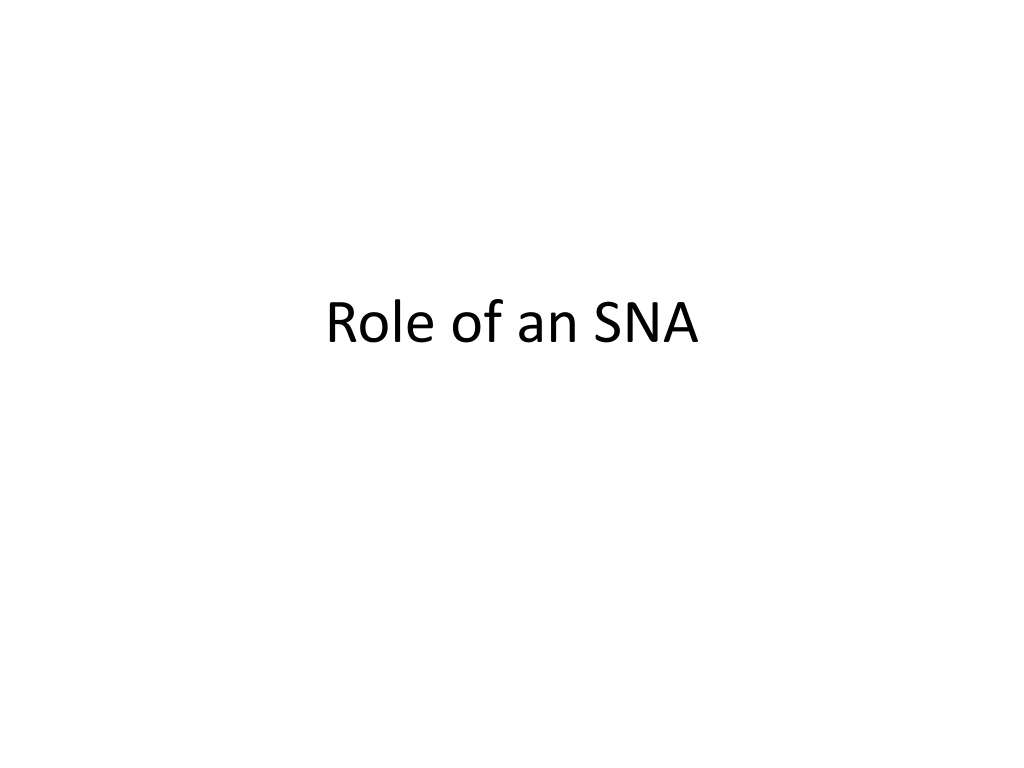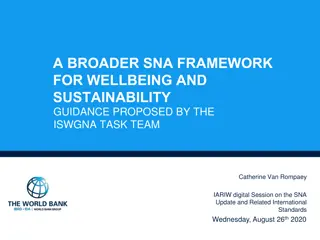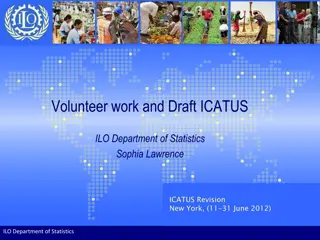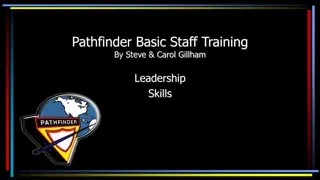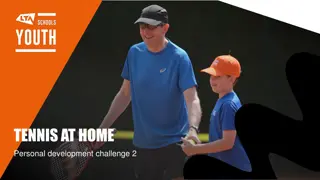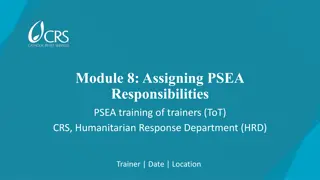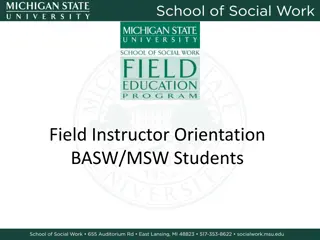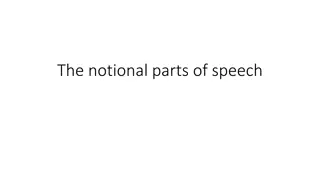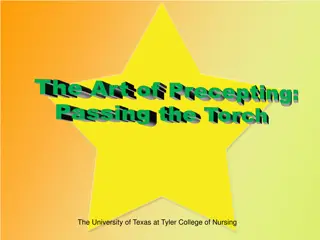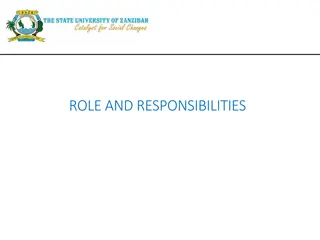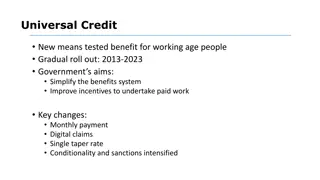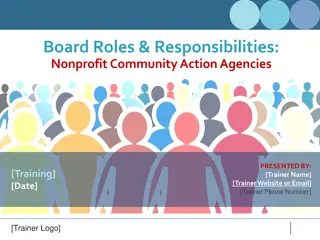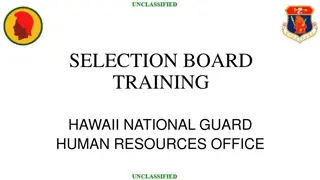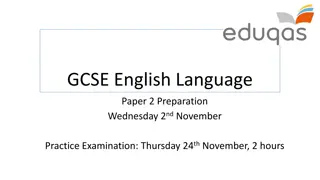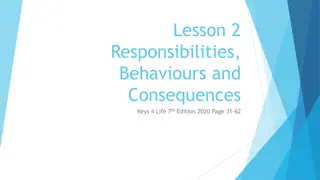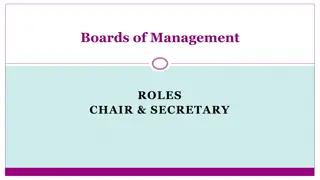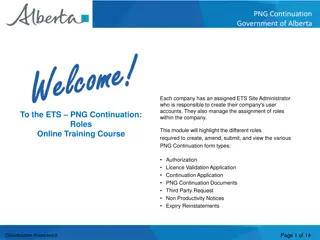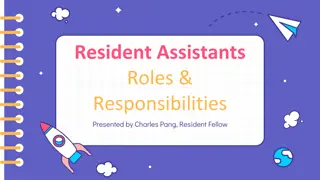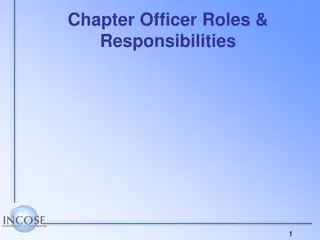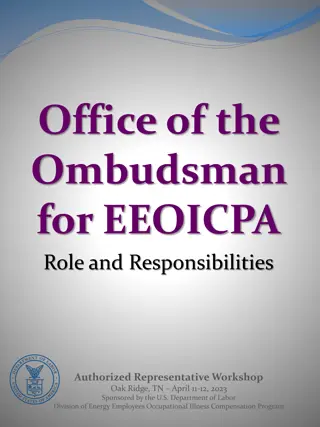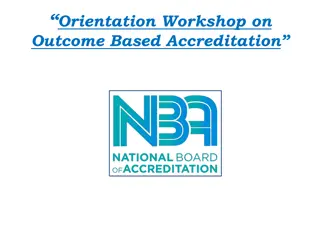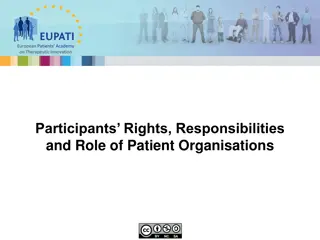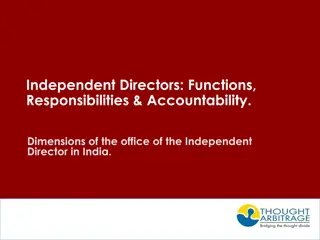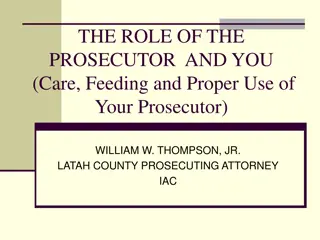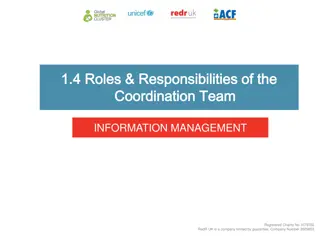Role of an SNA: Key Responsibilities and Qualities
As a Special Needs Assistant (SNA), you play a crucial role in the lives of children by being their main link between home and early care/education environments. Your responsibilities include observing and understanding children's behaviors, maintaining a close relationship with parents, and providing support and guidance. Effective communication with parents, being open and honest, and possessing qualities like patience, humor, and flexibility are essential for successfully fulfilling your role as an SNA.
Download Presentation

Please find below an Image/Link to download the presentation.
The content on the website is provided AS IS for your information and personal use only. It may not be sold, licensed, or shared on other websites without obtaining consent from the author. Download presentation by click this link. If you encounter any issues during the download, it is possible that the publisher has removed the file from their server.
E N D
Presentation Transcript
For the majority of the children, their regular carer / educator is their closest point of adult contact, after their parents. For this reason, out of all professionals involved in the child s life you may be the one who holds the most key information about the child. As observations are made on a daily basis you are in a position to see at first hand, the minor changes in the child s behaviour/ development pattern
You are also the main link between the child s home/family and early care/education environment and should therefore hold a close relationship with the parents/guardians. As a professional whom the parents may have contact with, you will be involved in helping the family to cope with a disability which may affect their entire life-style.
Talking to parents is a skill which can be learned and improved. Parents do not remember all the information they are given. Even when relaxed, they may retain less than a third and even this may be inaccurate (D. Hall and P Hill) It is important that you try to be confident within yourself when talking to parents, as they will look to you for advice, reassurance and support.
For that reason, it is also important that you are open and honest when talking with them and that you do not give them false hope about their child s future. Because parents sometimes try to compare their child with other children at the same age or stage you should always maintain that each child is unique and that it is difficult to compare one child with another.
qualities As a professional in the field of early care and education you may hold many qualities, which perhaps you take for granted on a daily basis. You may also feel that there are some qualities you would like to strengthen.
These qualities include: Patience Sense of humour Caring Understanding Observant Confidence Organised
Flexibility Hard to shock Versatility Enthusiasm Warmth Loving
Reliability Sense of fairness Ability Friendliness Consistency Positivity
Skills, Knowledge and Personal Qualities required, in order to be an Effective Special Needs Assistant To be a competent and effective member of the school based team means that certain skills and qualities have to be developed and nurtured. In order to do this, it is necessary to look at the personal skills a childcare worker should have to work in the environment and meet the many needs and obligations required.
Beginning work practice involves looking at what skills and knowledge are required for working within the childcare sector. You need to identify what skills and knowledge you possess currently that could help you in your career. The skills you may have already could be: Computers Listening Communication (verbal and non-verbal) Communication Technology (fax, email etc.) etc.
You also need to identify the knowledge you currently possess. What is it that you know about; Special needs children legislation working with members of a team curriculum areas etc
You will then need to identify what personal qualities you could bring to your role as the SNA. What type of person are you: responsible reliable caring patient etc
Many people go into the world of the SNA because they like children. This is a fine place to start but there also needs to be a realistic approach. Working with children can sometimes be challenging, it requires an enormous amount of energy and is a huge responsibility. As you progress you will gain a picture of the role and responsibility of the SNA in the school sector. This should help you to come to the decision whether the role of the SNA is one you wish to pursue.
As in any profession, it is important to be able match your personal attributes and skills to your profession. This sentiment is more imperative when working as the SNA. However the more skills you are able to develop, the better it will be for your work environment
WHAT MAKES AN EFFECTIVE SPECIAL NEEDS ASSISTANT WHAT SKILLS ARE REQUIRED The most fundamental skill required for working as an S.N.A. is that we love the children and enjoy working with them. After this everything else is easy. Indeed, John Ruskin (1849-1906) highlights this when he states, when love and skill work together, expect a masterpiece . Tune in to the child s physical needs, such as food, warmth, comfort and toileting. This is particularly important for children who cannot communicate their needs and wants.
Empathise with people experiencing a variety of difficulties. Take an active interest in the person s life and development, for example Westlife Posters on the wall / huge interest in Cars etc. Be able to use own initiative. For example, David hasn t been changed and must be uncomfortable. Don t wait for someone else to change him.
Be adaptable. Today I am working in school, tomorrow I will be working in the residential setting. David s concentration level is limited to 10 minutes. Therefore, we will change to a different activity after 10 minutes. Change behavioural methods if needed.
Remain calm under pressure. Dealing with children who present with challenging behaviour can be, as the name suggests, challenging. Children who throw objects, bite, kick out, use bad language and disturb the ideal setting can be trying for any worker. Advice! If things get too much, STOP! Count to ten, count to fifty if you have to. Do not in any way indicate that you are intimidated by the behaviour.
Have a good sense of humour and try not to be sensitive about children s remarks. Have a positive attitude, and enjoy your time with the children. Try not to wish for Friday to come! Be self-motivated and well organised. Encourage independence. This is a key concept when considering your role. You are there to give a high level of support. As Dr. Montessori recommended, Help me to do it by myself!
Common sense is a necessary quality. For example, it is such a hot day and John is wearing his heavy jumper. Gerry did not go home this weekend and as a result, is feeling down. Have good observational skills. For example children with Down s syndrome often present with heart complications. Keep watch for colour change on the child s face and around the mouth because of this. With epilepsy, children who have seizures may in many cases have signs to watch out for such as auras and staring.
Michael would be able to feed himself without spilling if he used a beaker. Angela soils herself everyday in school just before maths class. She is then brought out of the room to be cleaned. (Should observations be made here, and how would they help the child?). Be able to relate well to adults and work well in the multi disciplinary team. (Multidisciplinary team implies the medical professionals, social worker, teacher, SNA, psychologists etc. all working together and sharing information for the good of the child.
Be able to contribute to regular recording of difficulties and progress. Be willing to undertake in-service training. Work well under supervision and guidance. Work in a variety of settings-residential, playgroups, day-care centres, nurseries, schools, withdrawal sessions, workshops, bus escorts, hospitals etc.
Work in a variety of settings-residential, playgroups, day-care centres, nurseries, schools, withdrawal sessions, workshops, bus escorts, hospitals etc. Be able to share your own skills, for example, singing, knitting or being a good listener etc. Be able to value the child. No child can develop effectively when they are not feeling valued.
Specific duties according to the department of ed Preparation and tidying up of classroom(s) in which the pupil(s) with special needs is/are being taught. Assisting children to board and alight from school buses where necessary, travel as escort on school buses may be required. Special assistance as necessary for pupils with particular difficulties e.g. helping physically disabled pupils with typing or writing. Assistance with clothing, feeding, toileting and general hygiene. Assisting on out-of-school visits, walks and similar activities. Assisting the teachers in the supervision of pupils with special needs during assembly, recreational and dispersal periods. Accompanying individuals or small groups who may have to be withdrawn temporarily from the classroom. General assistance to the class teachers, under the direction of the Principal, with duties of a non- teaching nature. (Special Needs Assistants may not act either as substitute or temporary teachers. In no circumstances may they be left in sole charge of a class). Where a Special Needs Assistant has been appointed to assist a school in catering for a specific pupil, duties should be modified to support the particular needs of the pupil concerned.
Education Psychologist The National Educational Psychological Service agency (NEPS) was established in 1999 to develop and provide an educational psychological service to primary and secondary schools. The NEPS mission is to support the personal, social and educational development of all children through the application of psychological theory and practice in education, having particular regard for children with special educational needs.
The service provided by NEPS has four main strands Casework with individual children and young people Consultation and support for teachers and parents Project work in schools Promotion of mental health in schools An education psychologist can advise teacher and parents about children who may be experiencing learning or behavioural difficulties. They also provide educational assessment of children.
Resource Teacher Circular 8/99 (Dept of Education and Science) explains that a Resource Teacher assists schools in providing support for children with Special Educational Needs arising from disability by: - assessing and recording child needs and progress - setting specific, time-related targets for each child agreeing these with the class teacher and principal
- direct teaching of the children, either in separate room or within the mainstream class - team teaching - so long as the children concerned are deriving benefit from it - advising class teachers in regard to adapting the curriculum, teaching strategies, suitable textbooks, use of information technology, and suitable software and a range of other related matters- meeting and advising parents, when necessary accompanied by the class teacher - attending short meetings with other relevant professionals in the child s interests, e.g. psychologist, speech and language therapist, visiting teacher, special school etc.
Special Educational Needs Organiser The National Council for Special Education was set up in January 2005 and has responsibility for the SENOs. Special Educational Needs Organisers (SENOs) are responsible for delivering special education services at local level. Currently there are about 71 SENOs. SENOs are the point of contact for parents/guardians and schools. They process applications for children with low incidence disabilities with special educational needs at both secondary and primary level
. (Low Incidence Disabilities include Physical Disability, Visual and /or Hearing Impairment, (Severe) Emotional Disturbance, Moderate to Severe/Profound General Learning Disability, Autism, Specific Speech and Language Disorder, Assessed Syndrome in conjuction with Low Incidence Disabilities already mentioned and Multiple Disabilities). This role will also involve regular and detailed contact with organisations such as health authorities, the Department, including administrative divisions, the Inspectorate and the National Educational Psychological Service (NEPS).
Home Tuition Home tuition can be provided for children who cannot go to school because of a serious medical problem or for children who are waiting for a suitable school place. Children with autistic spectrum disorders or with severe learning disabilities who have specific needs may also be given home tuition during the month of July.
SNAs may be closer to parents than teachers, as they may themselves be from the immediate community, and may, or might have been, themselves parents of pupils in the school. Some parents may therefore consider them more approachable than teachers. It is very important therefore, that the SNA recognises the rules of confidentiality which govern her role as a member of the school staff. No discussion of the child, the teacher, the class or the events of the school day should take place without consultation and agreement with the class teacher.
Parents with questions or issues about school policy or practice should be referred directly to the class teacher or the SEN co-ordinator. This applies to direct face-to-face communication or indirect telephone communication. (It is not always appropriate for parents to have a phone number of a member of staff). The Data Protection Act 1988, 1998 and 2003 concerns the holding of both written and electronically kept records.
Building the Independence Skills of the Child As stated previously ensuring the child is as independent in the classroom is the key goal of the SNA. Building the child s independence skills will boost the child s self-confidence and self- esteem. Doing more than the child needs and always stepping in to help will not allow the child this opportunity to develop the skills and confidence to become independent members of the classroom (to the best of their abilities).
